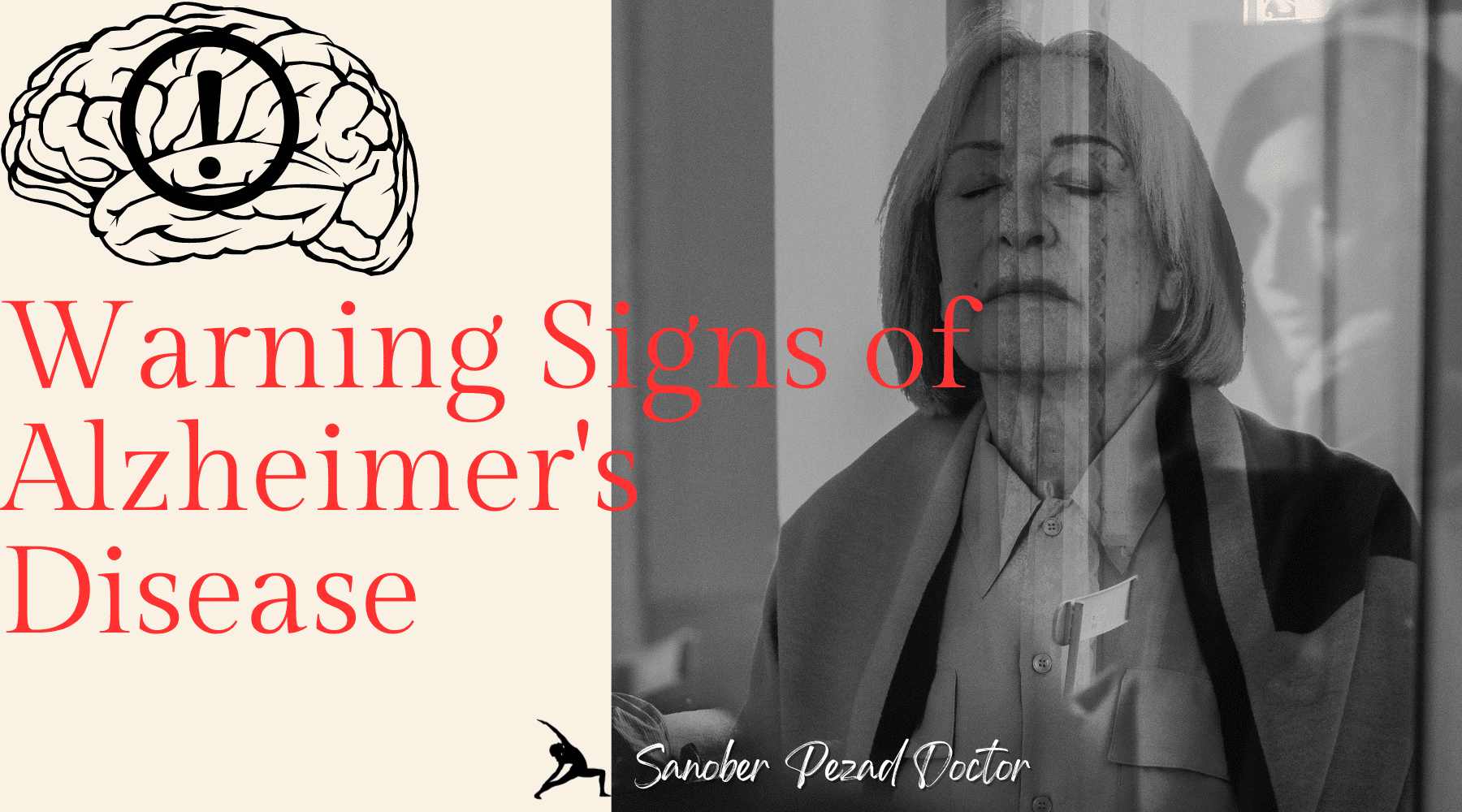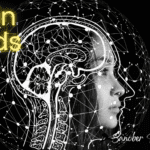10 Early Warning Signs of Alzheimer’s Disease

Early detection comes before an Alzheimer’s diagnosis. If you or your loved ones notice these early signs of Alzheimer’s Disease, you need to act now!
1- Memory changes that disrupt daily life
With typical aging, a person sometimes forgets names or appointments but remembers them later.
One of the most common signs of Alzheimer’s, especially in the early stages, is forgetting recently learned information. Others include forgetting important dates or events, asking for the same information over and over, relying on memory aids like reminder notes or electronic devices, or relying on family members for things the person used to handle on their own.
2. Challenges in planning or solving problems
With typical aging, people may make occasional errors when balancing a checkbook.
But with Alzheimer’s, some people may experience changes in their abilities. They may have trouble following a familiar recipe or keeping track of monthly bills. They may have difficulty concentrating and take much longer to do things than they did before.
3. Difficulty completing familiar tasks
Typical aging involves occasionally needing help to use the settings on a microwave or to record a television show.
People with Alzheimer’s often find it hard to complete daily tasks like shopping, cooking, personal grooming, or medical care.
Sometimes, people may have trouble driving to a familiar location, managing a budget at work, or remembering the rules of a favorite game.
4. Confusion with time or place
With typical aging, a person may sometimes get confused about the day of the week but figure it out later.
People with Alzheimer’s can lose track of dates, seasons, and the passage of time. They may have trouble understanding something if it is not happening immediately. Sometimes they may forget where they are or how they got there.
5. Trouble understanding visual images and spatial relationships
Typical aging includes vision changes related to the aging of the eyes, like cataracts.
But for some people, having vision problems is a sign of Alzheimer’s. They may have difficulty reading, judging distance, and determining color or contrast. Perception and judging distances have very real implications for driving. The use of rear-view mirrors and side mirrors while driving is key to safety. But for someone with the disease, using all of these mirrors while processing the changing view in front of them, and looking over their shoulders to back up, is overwhelming to their senses – it’s too much information! They may become upset or make mistakes, both of which can lead to accidents.
6. New problems with words in speaking or writing
Typical aging includes sometimes having trouble finding the right word.
People with Alzheimer’s may have trouble following or joining a conversation. They may stop in the middle of a conversation and have no idea how to continue or they may repeat themselves. They may struggle with vocabulary, have problems finding the right word, or call things by the wrong name (like calling a “watch” a “hand clock”).
7. Misplacing things and losing the ability to retrace steps
Typical aging involves misplacing things from time to time, such as a pair of glasses or a remote control. A person with Alzheimer’s disease may put things in unusual places. They may lose things and be unable to go back over their steps to find them again. Sometimes, they may accuse others of stealing. This may occur more frequently over time.
8. Decreased or poor judgment
Typical aging involves making a bad decision once in a while. People with Alzheimer’s may experience changes in judgment or decision-making. For example, they may use poor judgment when dealing with money, giving large amounts to telemarketers. They may become less able to choose clothing that is appropriate to the weather or the season.
9. Withdrawal from work or social activities
With typical aging, someone may periodically feel weary of work, family, and social obligations.
A person with Alzheimer’s may start to remove themselves from hobbies, social activities, work projects, or family gatherings. They may have trouble keeping up with a favorite sports team or remembering how to engage in a favorite hobby. They may also avoid being social because it becomes harder and harder to follow conversations.
10. Changes in mood and personality
Typical aging can involve developing very specific ways of doing things and becoming irritable when a routine is disrupted.
But the mood and personalities of people with Alzheimer’s can change with the disease. It is much easier for someone with dementia to do things in very routine ways, with not much change or variety. They can become confused, suspicious, depressed, fearful, or anxious when situations call for spontaneous changes or quick responses. As a result, they may be easily upset at home, at work, with friends, or in places where they are out of their comfort zone.
What should you do if you see these signs in yourself or someone else?
First and foremost, talk about it!
Talk with people about what you are seeing and what you are thinking. Discuss your suspicions. Break the silence about this disease that keeps people from getting the medical care they need.
Encourage anyone with symptoms to see a doctor to find out the cause. Some causes of the signs can be treated or reversed!
Getting the right treatment as soon as possible is crucial no matter what the diagnosis. It’s easy to let things slide. But you can change or even save a life by continuing to talk and follow up.
After detecting warning signs, the next step is getting a thorough assessment from a doctor. The diagnosis may not be Alzheimer’s at all – it may be a completely different diagnosis.
But no matter what the diagnosis turns out to be, early diagnosis is critical.
THE VERDICT
Together we can break the stigma that keeps people from getting the help they need.
If you are struggling with brain fog, depression, anxiety, or other brain health problems and feel like you’ve reached a plateau with your healing, check out our telehealth integrative health coaching consultation.
In my telehealth integrative health coaching clinic, we go the extra mile to uncover all areas of your health that can be contributing to your brain health problems.
Even though brain health problems can be overwhelming, we aim to walk with you on your journey to better health, naturally.
As one of the only few Holistic skin and health coaches in the world, we provide online coaching for people around the globe.
Till then,
Continue to glow, thrive and shine as always.
Sending lots of healthy and happy wishes your way. ?
P.S.- If you like what I share, consider Subscribing to stay connected. I do NOT spam. Promise! ?
Also, please leave a comment and share the article with your loved ones. Sharing is Caring!
Feel free to ask a question or leave a suggestion as well. I am always open to learning. ?





